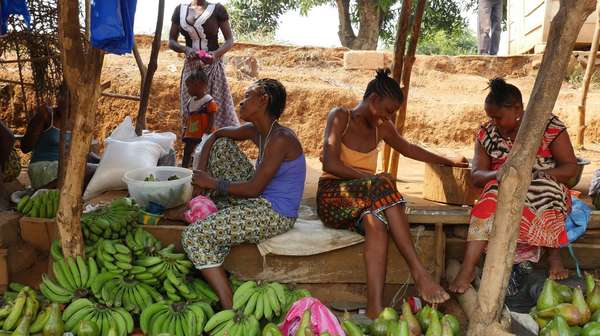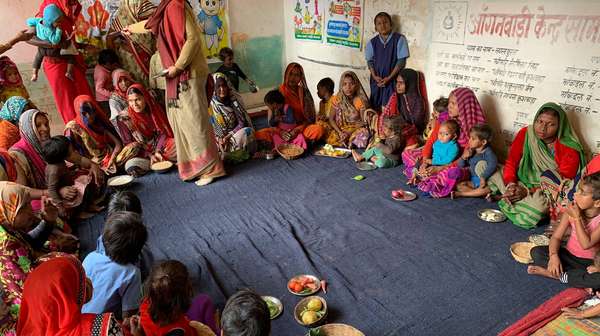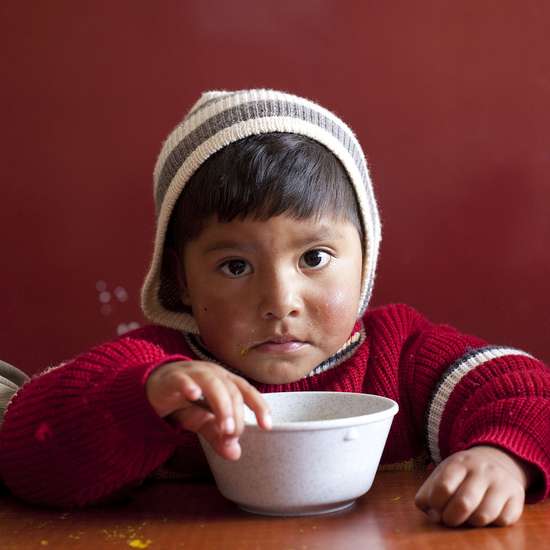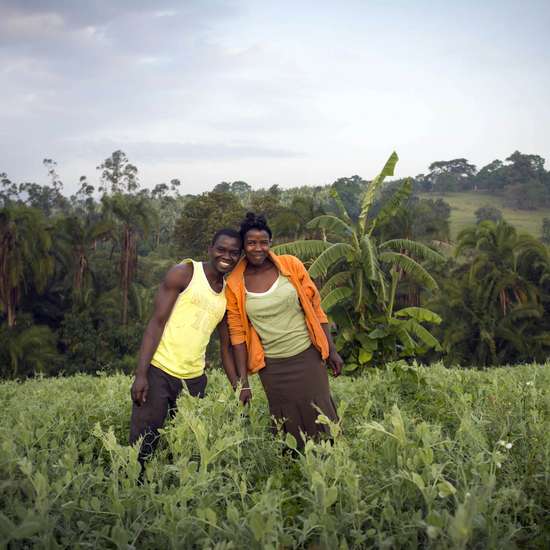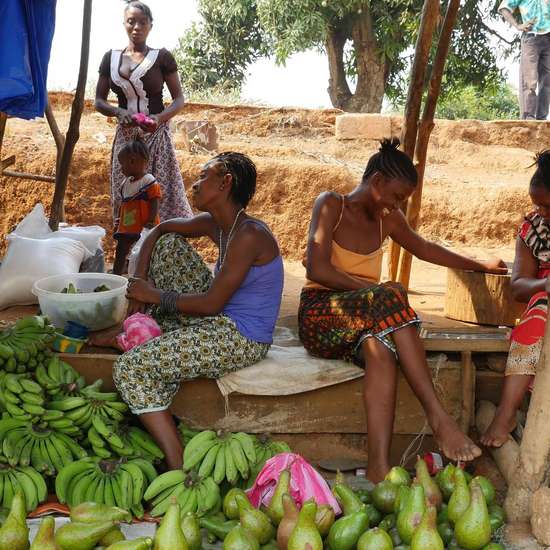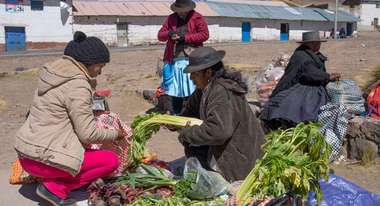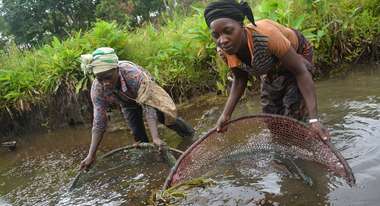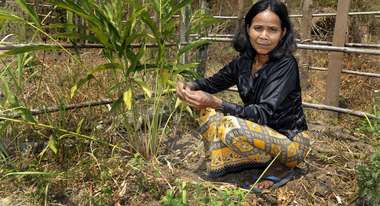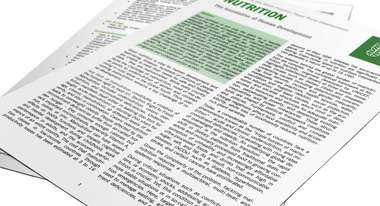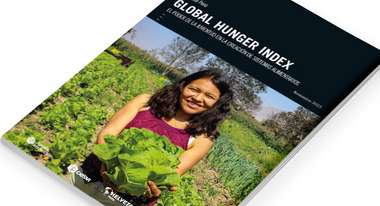WHH uses the nutrition-based LANN+ approach (Linking Agriculture and Natural Resource Management towards Nutrition Security) to bring all the key considerations for achieving healthy nutrition together.
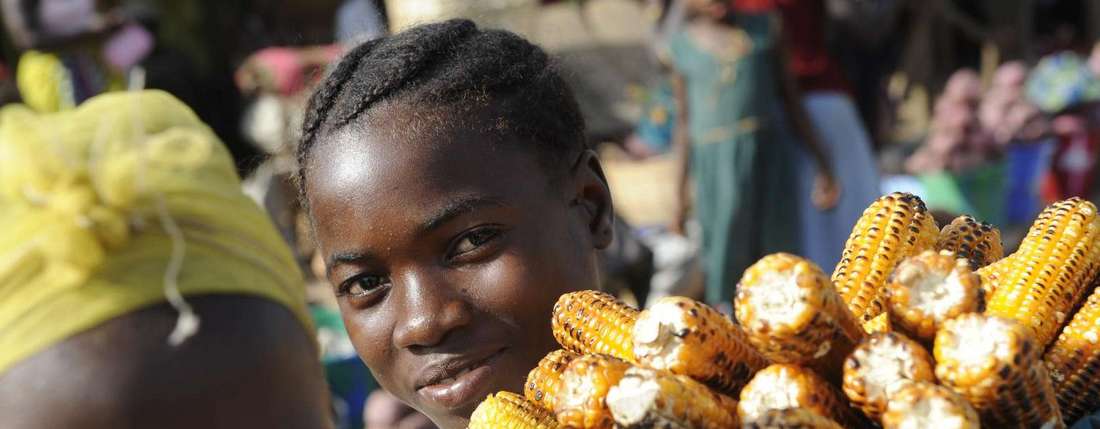
Food Security and Nutrition
The Challenge
An estimated 733 million people globally cannot get enough to eat (WFP). Welthungerhilfe (WHH) works to combat the different forms of hunger people face. Chronic hunger is a long-term state of undernourishment, often caused by a lack of access to affordable and nutritious food. Hidden hunger relates to malnutrition – a long-term unbalanced diet leads to nutrient deficiencies, causing disease and disrupting childhood development. Acute hunger is an extreme form of hunger, often linked to famine-like conditions. Conflict, natural disasters and other crises reduce food security for people often already facing chronic hunger. Climate plays a role in all forms of hunger.
WHH in 2023: Nutrition
123
Active projects
28
Countries
3.87m
Project participants
29%
Food sufficiency increase
Our Approach
WHH addresses the root causes of food and nutrition insecurity through a multisectoral approach called Linking Agriculture and Natural Resource Management towards Nutrition Security (LANN+). This approach includes nutrition-sensitive and nutrition-specific activities, civil society development, and advocacy measures. We partner with various local, national, and international platforms, coordination mechanisms, and networks in the nutrition sector.
WHH integrates a "nutrition view" into all sector interventions, including agriculture, water, sanitation and hygiene (WASH), and economic development. This includes providing short-term humanitarian relief interventions to respond to acute crises and target vulnerable groups with nutrition supplementation. WHH focuses on the first 1,000 days of life by sharing good maternal and child feeding practices. Encompassed in this work is improving the availability and access to nutritious food, promoting diet diversification, and collaborating with communities and schools to strengthen community-based institutions and advocate for a multisectoral implementation model.
The primary guides for WHH's work in nutrition are WHH's Food System Framework, and the Sustainable Food and Nutrition Security Orientation Framework.
A WHH flagship program supports 670 village communities across Asia and Africa. See the linked page for details.
Our Impact
Food access is a critical criterion of food security. Therefore, WHH tracks the impact of its projects by measuring the increase in households with access to sufficient food. At the last measurement, food sufficiency had increased by 29% in targeted households across 25 projects in 16 countries.
WHH tracks its nutrition outcomes by counting the number of women of reproductive age consuming a diverse diet. On average, during projects in which we measured these outcomes, the share of women aged 15 to 49 who consumed a minimally diverse diet increased from 32.6 to 60.2% across 32 projects in 17 countries.
In 2023, WHH's 123 nutrition-related projects directly impacted 3.87 million people. The families and communities of these project participants also benefit from these projects, bringing the indirect impact to almost 15 million people.
Among WHH‘s many nutrition-related projects, one of the largest is Nutrition Smart CommUNITY. The project has reached more than 90,000 households on two continents, seeing 77% improved sanitation practices, around 70% minimum dietary diversity among women and children, and 41% of households reaching crop diversity at $3.15 – $7.40 per household.




